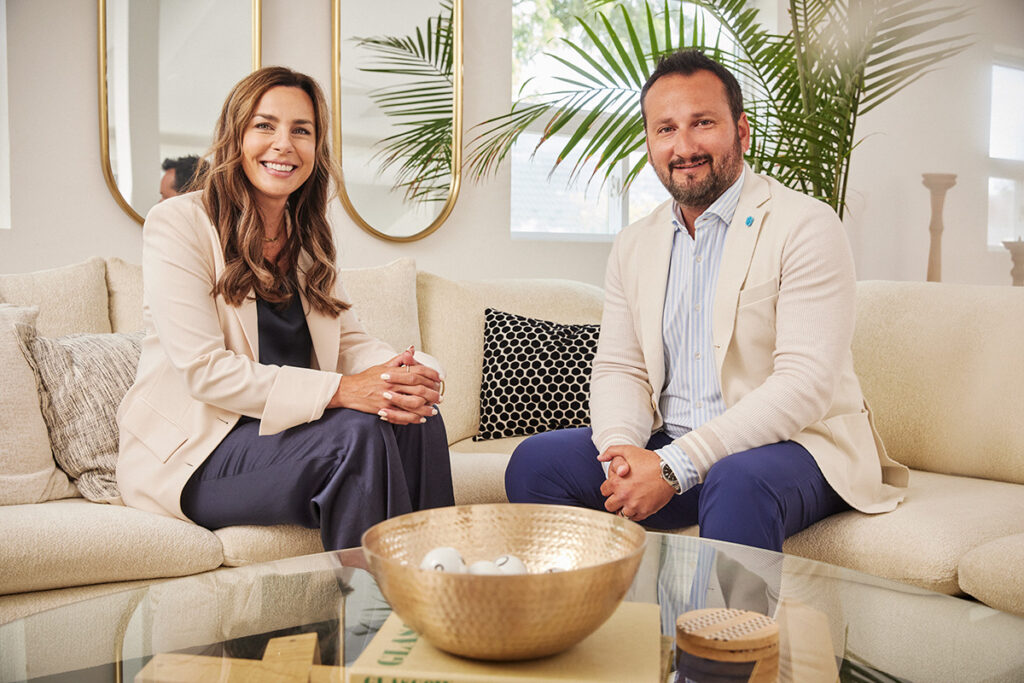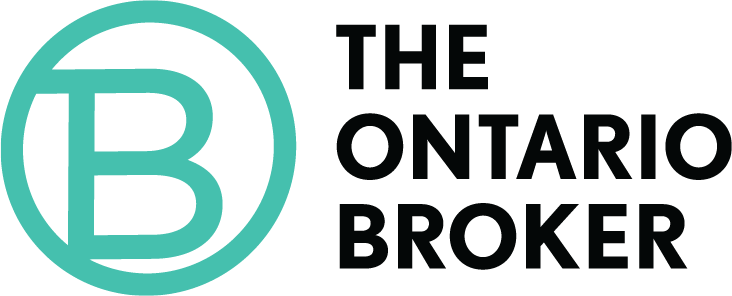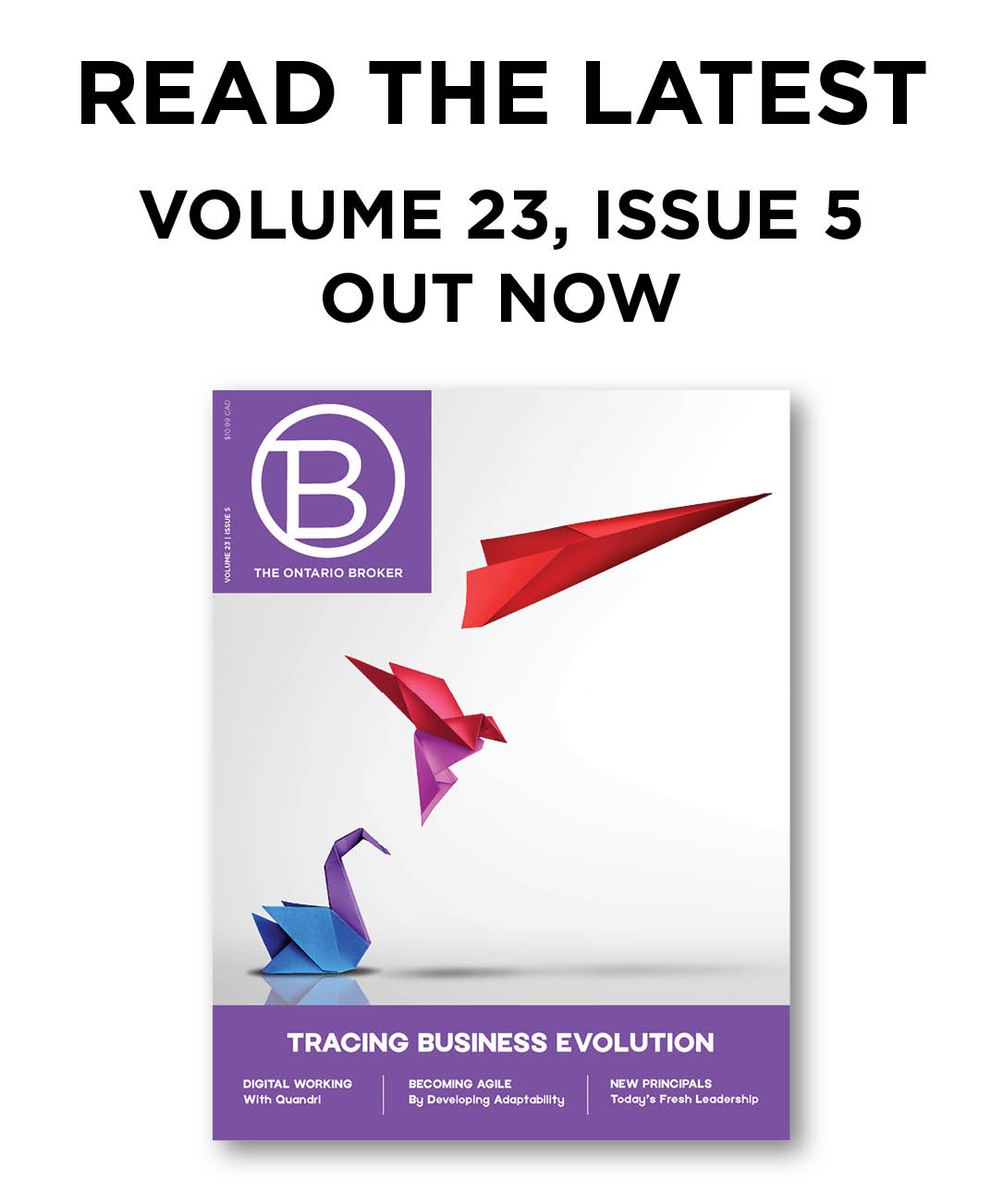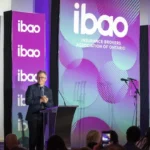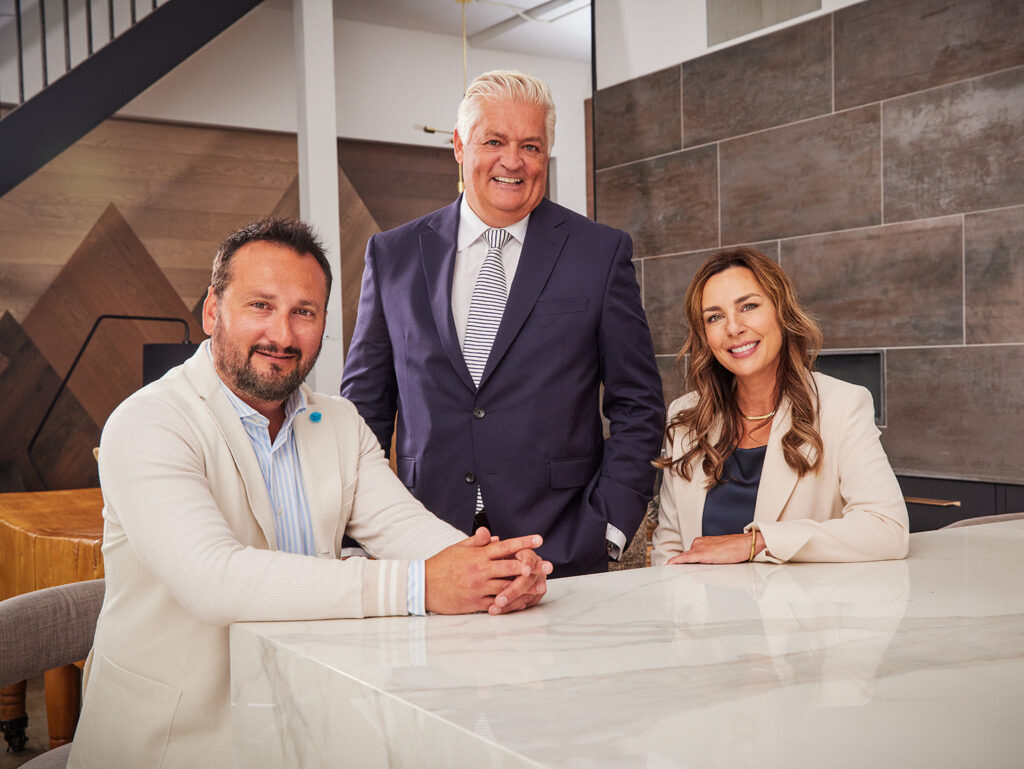
By Norah Black, VP Marketing & Communications, IBAO | Photos by Jason Gordon
“It was my first week, literally my first day at McFarlan when I knew I found my fit.” Christa O’Neil is Chief Operations Officer at McFarlan Rowlands. She’s spent most of her career with the brokerage, quickly moving up the ranks after joining the organization in 2010.
“They celebrated birthdays in the office that month. Me being the new kid, quite shy then, I offered to do the dishes so I could get to know people. Our CEO at the time rolled up his sleeves and joined me. I’ve been here ever since.”
McFarlan Rowlands is a brokerage I always felt I knew a little bit working at IBAO over the years. A small-town brokerage expanding across southwestern Ontario. Actively engaged in their local communities and within the industry. Always attending and supporting IBAO events.
An independent brokerage. And proud of it.
So when the announcement came out in May that they’d merged with McDougall Insurance Brokers, backed by Definity Financial, it came as a bit of a surprise.
McFarlan Rowlands provides immediate scale and meaningfully advances Definity’s broker platform strategy, said Rowan Saunders, Definity CEO, in a press release. With this transaction, we’re making strong progress toward creating another billion-dollar business for Definity.
So how did this small-town, independent brokerage land one of the biggest deals announced this year?
I’d like to say it started with their win for Brokerage of the Year, celebrated 6 months prior to the Definity announcement at IBAO’s Awards of Excellence Gala. But it’s been in the making for quite some time given McFarlan’s track record of profitable growth, extensive carrier relationships and laser focus on customer service.
EARLY PROSPECTS
“When I started at McFarlan in 1989, we were buying a lot of brokerages,” says Burke Neale, McFarlan Rowlands CEO. “When we merged with Rowlands, that stopped. Our CEO at the time didn’t want to take on debt. When I stepped in as CEO in 2017, I knew we needed scale that organic growth couldn’t achieve on its own. We’d buy a brokerage or two and pause a couple years to integrate.”
Burke says they always had an internal succession plan, but it was becoming more onerous to deliver.
“Interest rates changed, the brokerage grew too much, we were the victim of our own success really. We had many suitors. I always said we weren’t for sale, but a brokerage put an offer on the table, and I was obligated to tell our shareholders. Once they realized the value, they thought this is good.”
That deal fell through.
“After that we broadened our thinking a bit. There were discussions about putting McFarlan out to market, which I resisted quite strongly. I said there were only two brokerages I’d consider, one being McDougall. They have a compelling story. And our culture is so similar. Even though they’re twice our size, McDougall said, you guys run Western Ontario and we’ll run Eastern Ontario and we’ll just keep doing what we’re doing. That’s really how it came about.”
“It came down to continuity for our brokerage,” says Christa. “We were owned by the shareholders who continued to work within the business. That helped us over the years. But with the volume of shareholdings, and rising interest rates, it became increasingly difficult to continue to perpetuate internally. We wanted to choose our partner rather than be forced to find one. We’ve always had conversations with McDougall. Definity had recently taken majority share, and we were interested in learning more.”
STAYING INDEPENDENT
The conversations swirling around the industry today, at least within the broker channel, focus on the question of independence.
“That’s the biggest thing we struggled with, because we’ve always prided ourselves as being an independent broker,” says Jason Schneider, President of McFarlan Rowlands.
“But the landscape’s changed drastically in the last 10 years. Interest rates have increased significantly. And our model still allows people to buy in as shareholders, so the opportunities still exist despite us losing our independence, per se. We’re in a world where acquisitions in every sector are happening daily. You need that skill and capital to grow.”
“Independence was something we’ve always been very proud of. But it’s not something we’ve lost,” says Christa. “We used to operate free of any outside investment, other than those working in the business. Now that we have financial backing, we’re still directing our own journey. In terms of dictating how we do business, where we place business, and the decisions we make for our clients, we’re still unencumbered. I consider that independent.”
“It’s not for everyone. A lot of people would be totally against having Definity as a partner,” says Burke. “We were hesitant too. We don’t really want company interference. But when we saw the shareholder agreement, we felt better about the situation. There’s no movement of books. We’re still operating independently. All our partners are still owners in the business, and we still have a very vested interest in this organization going forward.”
THE MERGE LANE
While the McFarlan Rowlands story is so much more than their new partnership with McDougall—their legacy extends beyond 120 years—it’s hard to not want to know every last detail. Like what the reaction was from the team, and how things will work moving forward.
“For many of us, the merger came with some shock, some initial disappointment, grief even,” Christa shares. “You go through all the emotions that come with change. But once we were able to explain the whys and the hows and discuss the future, everyone’s in a better place. We see why this was necessary and all the positives to come out of it. We know with the pressure from insurers and the marketplace, scale and size matter, so we’re not only continuing who we are, we can now scale with financial backing.”
“The biggest thing we wanted going down this path was for things to stay consistent for our frontline staff,” says Jason. “We remain focused on our team. They’re the root of our success and something we’ll continue to protect.”
Despite things staying the same for the team, Christa admits her personal definition and perspective on independence has changed.
“We too used to hold out the fact that there was no insurer investment in our brokerage. We considered ourselves maybe better than. It was a differentiator from some of our competitors. I guess my eyes have been opened in that regard. We haven’t experienced pressure from Definity to make decisions we wouldn’t have before. They’ve been very clear they’re happy with the way we run the brokerage. One of the key components of our agreement is maintaining organizational independence and continuing to make decisions for McFarlan Rowlands that are best for our team.”
“There are things we can get synergy and savings on that we’ve started to discuss,” says Burke. “But they don’t really impact the day-to-day. We certainly don’t want to turn McFarlan Rowlands upside down, make a whack of changes just because. And we don’t want to change McDougall either. Our integration approach will be slow and cautious.”
“There are many opportunities with this partnership,” says Christa. “Larger clients are interested if we’re moving to a national presence and if we’ll have the capability to serve their growing business needs—that’s something we can unequivocally say yes to as we expand into other provinces.”
THE CURRENT TREND
There’s lots of speculation about brokerages and ownership. M&A activity has accelerated so quickly, many brokerages are wondering if this moment will pass, or the time is right to sell.
“Perhaps it’s my age, but I’m certainly finding the current pace of M&A daunting,” says Burke. “And I don’t think it’s going to stop. I’m not saying it’s good or bad. There’s a lot of capital out there.”
“The pressures are real in terms of insurer volume expectations, technology investments, talent acquisition,” says Christa. “But don’t let fear dictate your decision. Every brokerage needs to clearly understand and promote their value proposition, whatever that is. Small can be great. If you have a niche, if you have something you do well, whether it’s geographically or in a line of business, there’s room for success in that. We need to get creative and continue with confidence and clarity rather than let some of the noise dictate our businesses.
“Networks, whether formal or informal, can allow brokerages to maintain financial independence. Brokerages coming together through the IBAO or otherwise to share common challenges and find solutions collectively is key. Many may opt to sell or consolidate because they’re not able to overcome some of the challenges out there. It’s important to continue supporting and ensuring the ongoing viability of smaller brokerages as well as larger ones. There’s a place for both.”
THE WINNING TEAM
McFarlan’s Communications Team had approached management about applying for awards before but were always met with hesitation.
“I’d always said no,” Burke admits. “You nominate yourself, and I’m not big on that. It’s competing against other brokers—I’m not big on that either.”
What triggered the decision to apply for Brokerage of the Year was recruitment.
“We struggled during the pandemic, just like other brokerages. And I thought, you know what? Maybe now’s the time. Let’s get our name out there and see if it brings in talent.”
“We brought a group of 10–15 people to the awards night. It felt like the Oscars,” says Jason. “We were so thrilled to win. Our frontline staff who are in the trenches everyday doing the work—kudos to them. Everybody played a part in that win, that’s what made it feel so good.”
“We have a great team. It’s what I’m most proud of,” says Burke. “Seeing everyone we’ve brought in and developed over the years, how they’re running things now, it’s quite amazing. I got to accept the trophy, but that win didn’t have much to do with me. It was our staff and our incredible team.”
THE RIGHT PATH
The broker channel is wide enough and diverse enough that it can accommodate businesses of all types, models and sizes. A robust and adaptive brokerage like McFarlan Rowlands will always have a place in it, just as it always has in its various iterations.
“What I’ve loved most about this business are the relationships and getting to meet so many great people,” says Jason. “Clients, company partners, everyone on our team. It’s a small, close-knit industry I’m very happy to be part of.”
“Within the broker channel, there are so many paths a person can follow depending on their strengths and goals, whether it’s sales, service, administration, business operations, accounting, claims,” says Christa. “There’s enormous opportunity to work your way up. Many brokerages hire on aptitude, not experience. We’ve developed career paths and roles that allow people to come in at entry level positions and very quickly move up if they’re inclined and capable. Insurance is such a rewarding career. Sky’s the limit.”
“I started in insurance when I was 19. I’ve made a ton of friends. It’s been a great gig,” says Burke. “My brother-in-law worked for an insurance company. I saw what he was doing and said, that looks cool. I want to do that. Now I have a daughter in insurance, she’s having a great career.”
